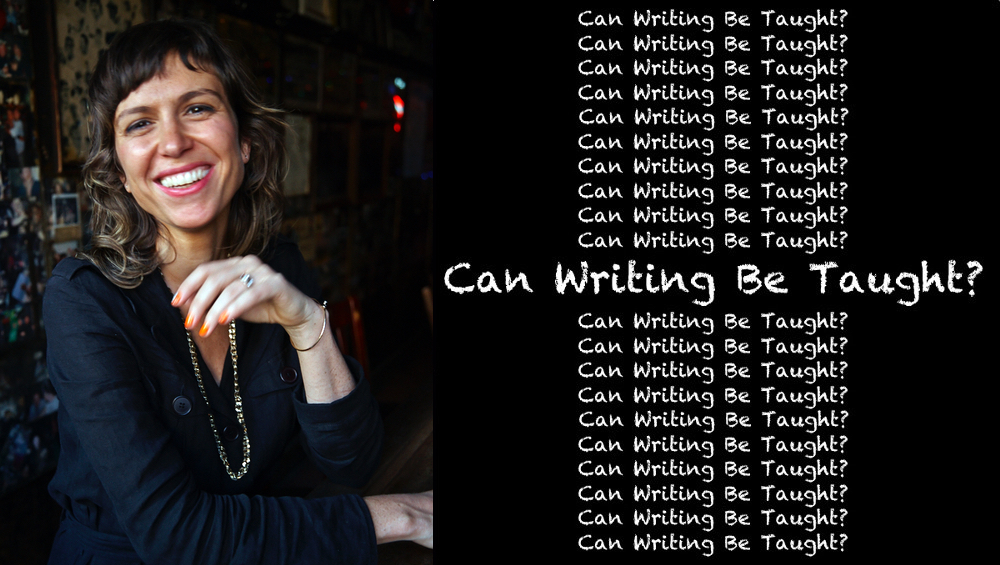Electric Lit relies on contributions from our readers to help make literature more exciting, relevant, and inclusive. Please support our work by becoming a member today, or making a one-time donation here.
.
In our series “Can Writing Be Taught?” we partner with Catapult to ask their course instructors all our burning questions about the process of teaching writing. This month we’re talking to Courtney Maum, who is leading an independent study on landing yourself a book contract—all the detailed, comprehensive information she includes in her book Before and After the Book Deal, but with exercises and guidance. This class is offered on a rolling basis, so sign up whenever you’re ready to get serious about selling your book.
What’s the best thing you’ve ever gotten out of a writing class or workshop as a student?
At the Wesleyan Writers workshop back in 2010, I took a masterclass with Michelle Hoover who taught us this thing called “The Desire Test.” Five questions that help you determine your characters’ internal conflicts. It changed the way I thought about story building and helped me develop plot. And Alexander Chee told me at the same conference that if you have a cliché in your story, you need to put a funny hat on it and make it dance around.
What’s the worst thing you’ve ever gotten out of a writing class or workshop as a student?
You should think like a writer every day, observe life as a writer. But even those lucky enough to be writing full time don’t write every day.
Anybody who has ever said that you have to write every day to be a writer is not a friend of mine. You should think like a writer every day, observe life as a writer. But even those lucky enough to be writing full time don’t write every day. Life gets in the way, obligations, work, email. If you can write in a solid way three times a week right now, you’re doing more than fine.
What is the lesson or piece of writing advice you return to most as an instructor?
Revision is where the writing actually takes place. That is a lesson I’ve had to learn the hard way, by spending many years thinking I was a first-draft kind of lady, and then realizing that I’m actually a 27th draft kind of gal. Revision is a privilege. Think of actors, when they audition—they usually get one shot. But we’re in a business where we get to hide our mistakes for quite a while.
Does everyone “have a novel in them”?
Probably. But not everyone will be the author of that novel. Some people are meant to share their stories in ways that don’t involve the written page.
Would you ever encourage a student to give up writing? Under what circumstances?
I regularly encourage people to give up the idea that they will make money from writing. That is pretty much the first thing that I tell aspiring writers. I’m very big on having a stream of income that is not dependent on your writing until you have, say, two books out or some kind of established career path. I blame our ingénue obsessed culture with making every writer think that they must make a living off their work, and that a published book is the only way to “make” it.
What’s more valuable in a workshop, praise or criticism?
I regularly encourage people to give up the idea that they will make money from writing.
Maybe silence. I have complicated feelings about the workshop structure. The problem, as I see it, is that the feedback (positive and negative) is often going toward a recipient who doesn’t yet know what to do with that feedback. And the setting is so public! I think you have to be pretty darn mature to understand what your writing needs.
Should students write with publication in mind? Why or why not?
I think 70% no and 30% yes. Write most of the time like nobody is going to read you, and then once in a while, write for a specific outlet or magazine to keep your game on point.
In one or two sentences, what’s your opinion of these writing maxims?
- Kill your darlings: Yes, without remorse.
- Show don’t tell: Show for three paragraphs, tell for one, and keep up this ratio through a book-length project.
- Write what you know: Write what you know, sure, but always keep learning so that you know a lot about the world. When you don’t know something, research and get in touch with people who do know something about it. Interview people. Get out of your house.
- Character is plot: Character can be plot if the character has a job and some problem in their life that can not be solved by sitting on the couch and thinking about it for a lot of pages.
What’s the best hobby for writers?
Sewing.
What’s the best workshop snack?
Crispy roasted chickpeas. But you have to bring enough to share.
